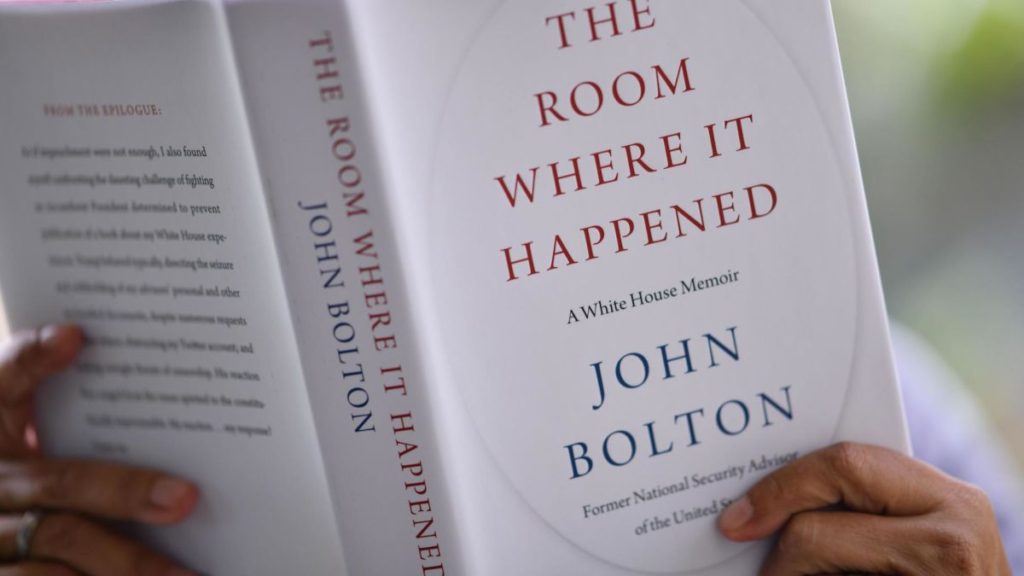Bolton claims Trump asked China for re-election help 03:19
Hong Kong (CNN)It’s safe to say former White House national security adviser John Bolton’s book has made a splash.
With revelations about US President Donald Trump’s strategy in Korea, his response to the coronavirus, and his dealings with China, Bolton’s White House memoir has been dominating headlines around the world since advance copies began circulating this month.
This has also been true in China, where state media has been happy to play up many details of Bolton’s exposé. However, not every part of “The Room Where It Happened” is considered so palatable behind the Great Firewall.
When it comes to Bolton’s allegations that Trump asked Chinese President Xi Jinping for reelection help and voiced approval for mass detention camps in the Muslim-majority region of Xinjiang, Chinese media has largely stayed quiet. The country’s diplomats have been equally tight-lipped, with Foreign Ministry spokesman Zhao Lijian only commenting to say that China had “no intention” to interfere in US elections and that the Trump administration “clearly understands” Beijing’s position on Xinjiang.
Those statements were made at a news conference on June 18, in response to a question from CNN, but are notably missing from an official transcript of the event published by the Ministry of Foreign Affairs. MOFA transcripts often leave out questions on sensitive matters.
The only coverage of Bolton’s allegations about Xinjiang and election interference in mainstream Chinese media appeared in the English-language Global Times, a state-backed nationalist tabloid geared toward a foreign audience. The paper accused Bolton of being “an anti-China hardliner” who was seeking to “smear” Beijing and “further muddy the waters of US domestic politics.”
Online censorship
Limits on Bolton’s China revelations go beyond not covering the matter: there is evidence of discussion of the book being censored on two of the biggest platforms on the Chinese internet.
Users on Weibo — a Twitter-like service — complained they were unable to comment on the book or share passages from it, while on WeChat, China’s largest messaging app, posts about Bolton appeared to be being hidden or deleted. CNN was able to upload a screenshot of the book cover to WeChat, but no contacts could see the resulting post.
It is unclear what exactly triggers the censorship, as some posts about the book, including reports in Chinese media, are permitted.
Yan Duan, an office worker in Beijing, said she was locked out of her WeChat account after sharing a PDF of the book in a group message. She received the notification: “As this WeChat account is suspected of disseminating false information, the current login is disabled.”
“A friend of mine expressed interest in the book, so I thought I could directly forward the file,” she said, having received it from another contact on WeChat herself. “It seems that there’s a window of censorship. The file was sharable earlier. But afterward, I heard many incidents where the messages got hidden or the sender got kicked out like me.”
Representatives for Sina and Tencent, which operate Weibo and WeChat respectively, did not respond to a request for comment.
‘Ask the US’
The Great Firewall — and Chinese censorship in general — is a black box, and the exact purpose of any particular block can be hard to ascertain, whether it’s the work of individual censors or a top-down order to control coverage.
This is especially the case on a topic where some discussion is permitted, but certain elements are off limits.
According to Tetsushi Takahashi, China bureau chief for the newspaper Nikkei, a report on Japanese public broadcaster NHK about Bolton was blacked out in China. Foreign television channels, including CNN, are often censored in this fashion.
“I thought the book, released on Tuesday, worked in China’s favor. After all, Bolton describes Trump as unfit for the presidency,” Takahashi wrote this week. “The feed cut out when they showed Trump at the US-China summit in June 2019, when he asked Chinese President Xi Jinping to buy more American farm products. There is something Xi might want to hide: According to Bolton, the Chinese leader said he wanted to work with Trump for another six years, assuming he would be reelected. But Xi’s second term as president expires in March 2023. ‘Another six years’ meant Xi was already counting on an extension.”
It seems clear that China would rather the discussion remains focused on Trump, not Beijing. In the one response to a question about Bolton that the Ministry of Foreign Affairs has published online, spokesman Zhao said: “You may need to ask the US side for what was mentioned in the book.”

